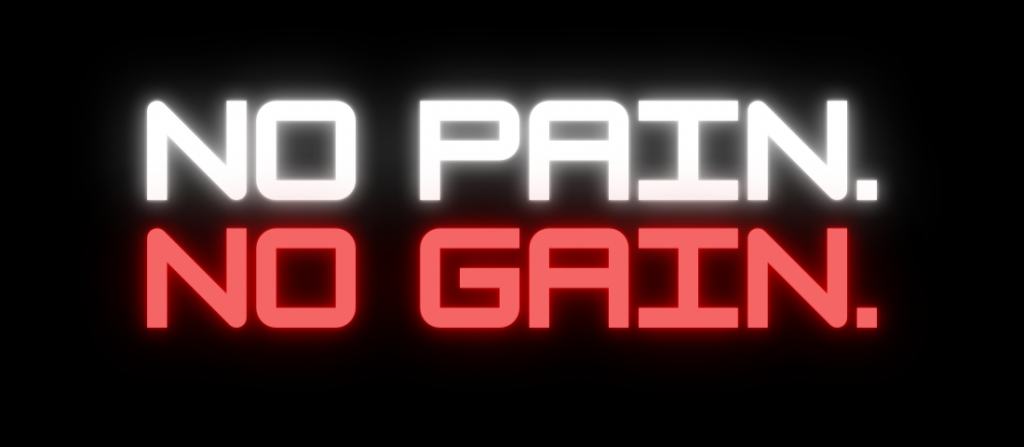How many times have you heard, read, or said “No Pain, No Gain”?
Maybe a gazillion?
There’s a lot of good and bad with this simple statement.
We don’t want aimless pain and discomfort without purpose and without a plan of working through it. But we want to be challenged physically, mentally, and competitively to strip off the old athlete and build a new athlete.
When an athlete is put in an uncomfortable position, having to endure a strenuous training session, a difficult practice, or brutal competition, it’s an opportunity. An athlete needs to learn how to manage this situation.
Yelling “toughen up” isn’t supporting this effort- it’s causing their mind to go to places we don’t want.
As coaches, we want our athletes to focus on the technique, preserve it, and find solutions to achieve the result. When we help them focus on the outcome, the purpose, and the actions, they can learn to use the discomfort appropriately.
Difficult situations are going to be interpreted by athletes differently. How they interpret them has a lot to do with how coaches frame it. If the coach says things like- “get tough,” “stop complaining,” “work harder,” it doesn’t help them solve their emotions at that moment. It just keeps the discomfort in the forefront.
If the coach discusses how to maintain posture, “fight for position,” “breath,” “change levels with control,” etc., then these are words the athlete can place their attention on and not focus on the discomfort.
Another famous phrase is, “It builds mental toughness.” I can tell you from going through some of the most brutal practices ever that these words didn’t make me mentally tougher. What it did is create a ton of discomfort.
Yes, my body adapted, and I got in better shape; however, I hated every second of it, especially when the coach was constantly barking at the entire time.
Not that the work would have been easier, but had the coach barked instructions on how to position our bodies, or how to breathe through the exercise, where to get our minds to reduce discomfort a little, it might have given us greater appreciation and understanding.
It’s not like athletes don’t know they have to work hard to get in shape- it’s just a part of the equation of being a better athlete.
If greater purpose and meaning could be placed on the discomfort, athletes have strategies to get through it and understand its importance and relevance- it might just ease the discomfort.
If you want to get tough and ready to run through a brick wall, be sure to go to www.SpeedToolbox.com and arm yourself with all the defenses you’ll ever need.

